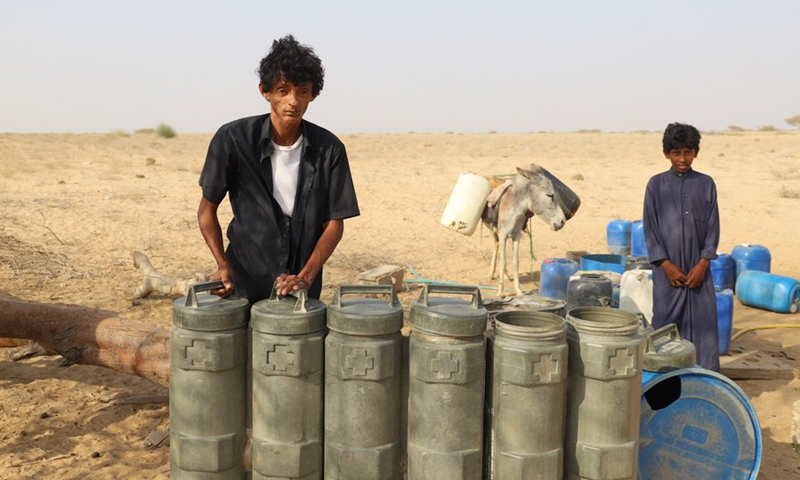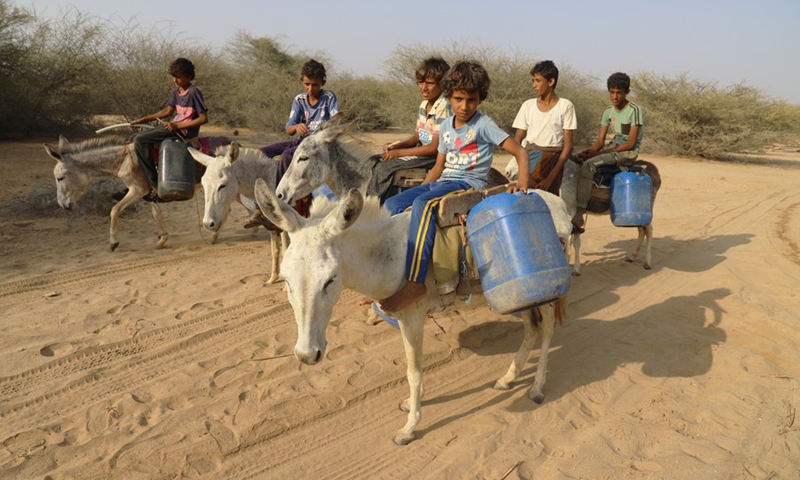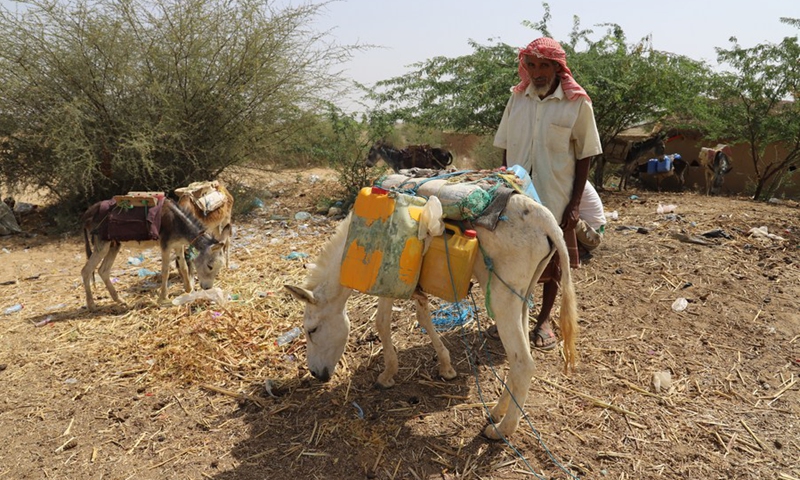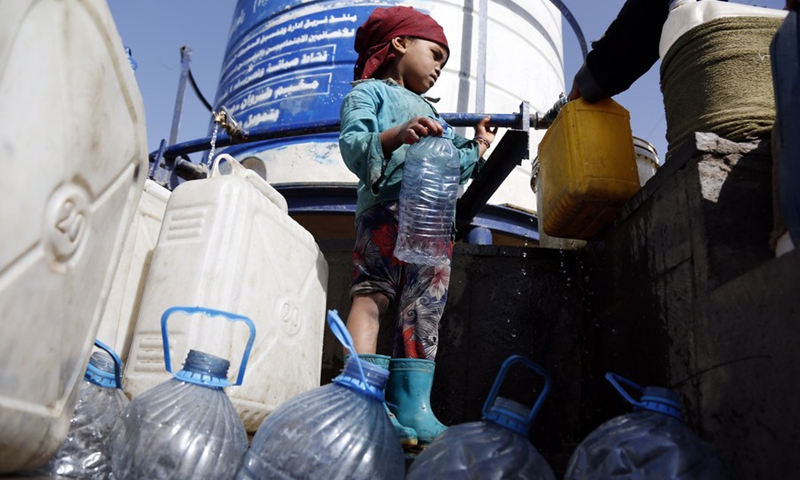
A Yemeni man stands near his water tanks made from discarded ammunition containers after he filled them up at a charitable water station in Abs District, Hajjah Province, northern Yemen on March 21, 2022.(Photo: Xinhua)

Yemeni children ride on donkeys with their water tanks after they filled them up at a charitable water station in Abs District, Hajjah Province, northern Yemen on March 21, 2022.(Photo: Xinhua)

A Yemeni man stands near his donkey carrying water tanks after he filled them up at a charitable water station in Abs District, Hajjah Province, northern Yemen on March 21, 2022.(Photo: Xinhua)

A child carries a large water bottle at the Dharawan camp for internally displaced persons (IDPs) near Sanaa, Yemen's capital, on March 25, 2022.(Photo: Xinhua)
"The only thing I benefited from this war is these big empty containers of ammunition which I used to fetch and preserve clean water," said Hasan Shuey, a Yemeni villager living in the Abs district of Hajjah province in northern Yemen.
The father of five has become creative through his daily struggle with hard life, turning several discarded ammunition boxes into water bottles for carrying water from miles away on the back of his donkey.
In Abs, where large swathes of land are just arid sand, fetching and storing water is a great challenge for everyone as water infrastructures are either too outdated to function or completely nonexistent.
"I waited more than an hour for my turn to fill my containers and go home," 21-year-old Ahmed Sahily told Xinhua near a water station. It would take him another hour riding on his donkey to reach home in the al-Sharki village.
Sahily said many wells in the region have dried up due to a lack of proper maintenance, which forced many villagers to take an exhausting trek in the desert to fetch the water.
Besides him, many people were still waiting impatiently as the sun was gradually setting down - most of them also had a long road to cover before reaching home.
Living in one of the most water-scarce countries in the world, Yemenis are facing aggravating water crisis as the years-long war has decimated the country's infrastructure. Water networks, water tanks, and dams have been bombed and shelled or fallen into terrible disrepair.
"The war has aggravated our suffering and living conditions," complained Shuey.
The United Nations estimated that more than 15 million Yemenis resort to expensive and time-consuming ways to get enough water every day.
Most villagers in Hajjah province use donkeys or mules to carry large water bottles for daily use because the severe fuel shortage has turned off most of the vehicles in the area.
For the residents in cities, they had to spend a lot of money on buying clean drinking water as tap water has become extremely rare in this war-torn country, sometimes once in 40 days.
The internally displaced persons, on the other hand, are forced to carry water containers on their heads and walk for long distance to reach their camps. It is for drinking only, and there is no more water for taking a shower or washing clothes.
The United Nations Children's Fund (UNICEF) said that Yemen's protracted civil war which started in 2014 has had a strong impact on the access to water for the Yemeni people.
"More than 16 million people, including 8.47 million children, are in urgent need of water," the UNICEF warned.
